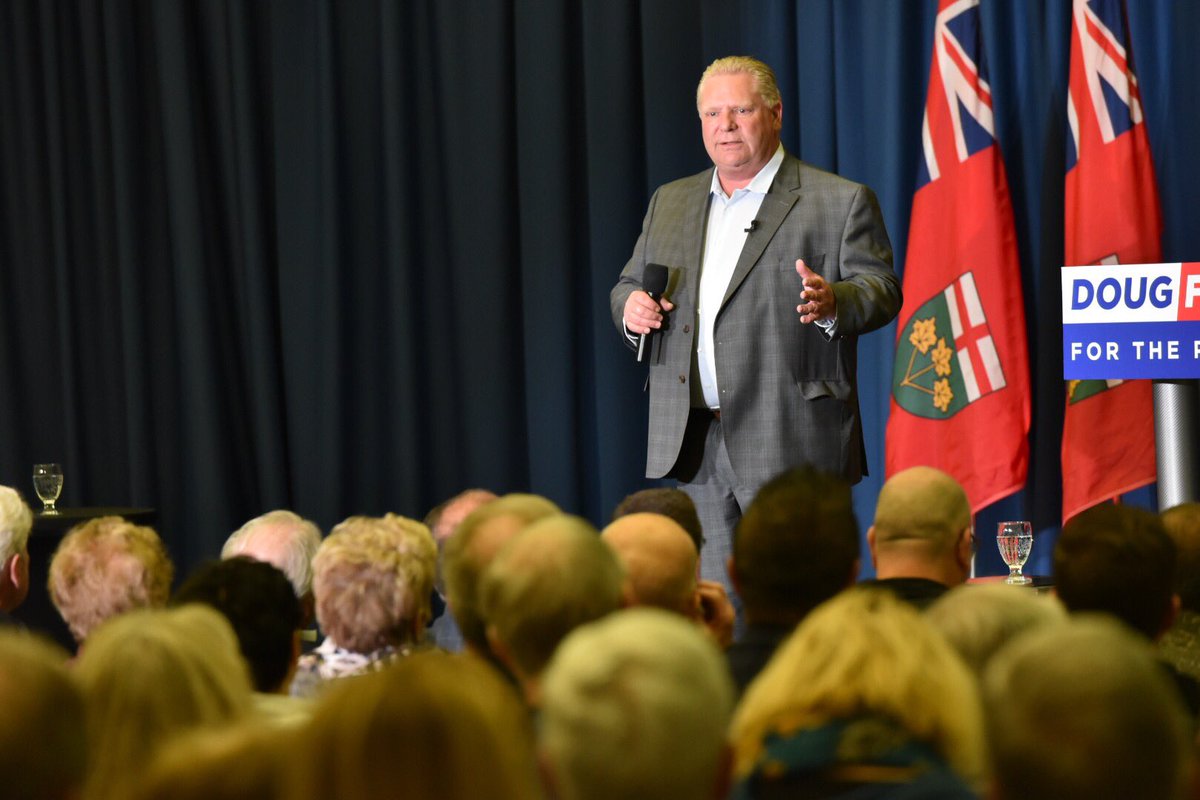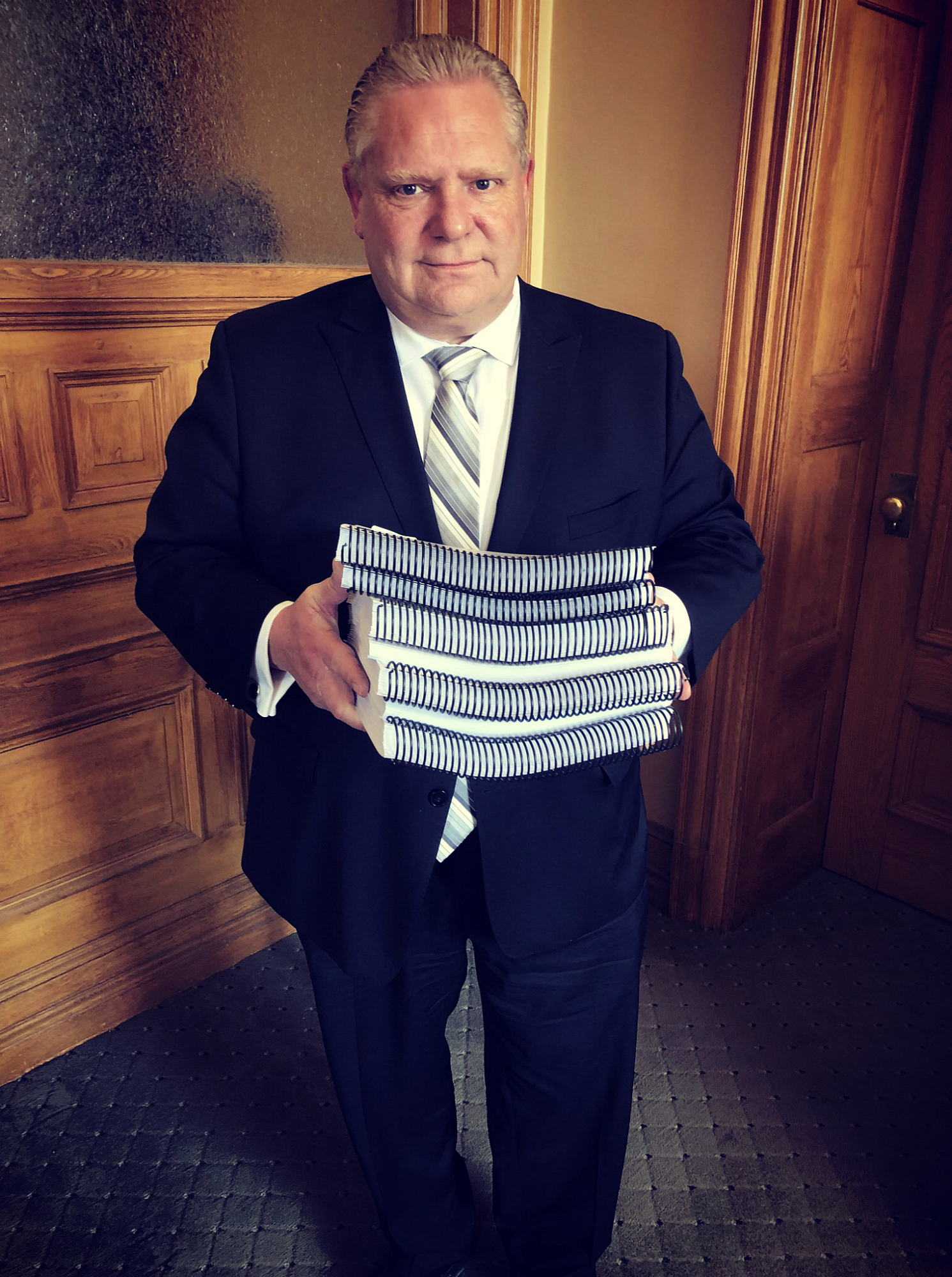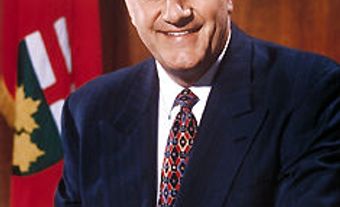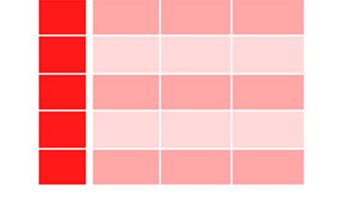
Early Life and Business Career
Doug Ford was born on 20 November 1964 in Etobicoke, Ontario, one of four children of Douglas Bruce Ford Sr. and Ruth Diane Campbell. He has been a lifelong resident of the Toronto suburb. Ford attended high school at Scarlett Heights Collegiate Institute. As a young adult, he began working at Deco Labels and Tags, a label-printing and adhesive products company co-founded by his father. Ford spent much of his working life at Deco and rose through the ranks to eventually replace his father as company president. Ford also oversaw Deco’s expansion into the United States, opening offices in Chicago and New Jersey.
Municipal Politics
Ford replaced his younger brother Rob Ford as Toronto city councillor for Ward 2 Etobicoke North in October 2010, when Rob was elected mayor of Toronto (see Municipal Government). Rob Ford had held the Ward 2 council seat for the previous 10 years. Doug Ford won the ward handily, garnering 71.7 per cent of the vote against five other opponents.
With his brother in the mayor’s chair, Doug Ford became one of the most powerful members of city council. He championed the mayor’s socially and fiscally conservative agenda and frequently served as his spokesperson and defender. Ford served on several major committees, including the budget committee and the civic appointments committee. He also served on the board of Build Toronto, a real estate corporation that develops and sells city-owned land. Ford promoted cost-cutting measures such as privatizing garbage pickup and promoted the development of a massive waterfront project that would include a monorail and Ferris wheel.
Controversy and Scandal
During Doug Ford’s time on council (2010–14), his brother Rob became embroiled in international scandal for his struggles with substance abuse, including crack cocaine, and was dubbed Canada’s “crack mayor.”
Doug Ford was at the centre of some local controversies himself. His comment that he would close a public library in his ward “in a heartbeat” as a cost savings measure, led to a public argument with acclaimed author Margaret Atwood. Ford claimed he would not recognize Atwood even if she walked by him.
After police chief Bill Blair threatened a defamation lawsuit, Ford apologized for claiming that Blair was targeting his brother Rob and leaking stories to the press about him.
In a May 2013 article, The Globe and Mail alleged that Ford was a hashish dealer during the 1980s, according to confidential sources. There were no records of any charges against him for drug trafficking, and Ford strongly denied the allegations.
Ford was also criticized for suggesting that an Etobicoke home that helped developmentally disabled youth “ruined” the neighbourhood.
In 2016, long after he left city council, the city’s integrity commissioner ruled that Ford had violated the council’s code of conduct by lobbying inside city hall on behalf of two companies with ties to his family business.
Campaign for Mayor
In September 2014, Rob Ford was forced to withdraw from the 27 October 2014 mayoral election after he was diagnosed with an abdominal tumour. (Rob Ford died on 22 March 2016.) Doug Ford, who had been acting as the mayor’s campaign manager, replaced him as a mayoral candidate, registering just minutes before the deadline.
During the campaign, Ford focused on his experience at city hall and portrayed himself as the natural successor to his brother without the scandals. Ford finished second to John Tory with 33.7 per cent of the vote. Tory won 40.3 per cent of the vote. “We did not have deep pockets and we only had six weeks… but together we have changed the political landscape in Toronto,” Ford told supporters on election night.
Ford returned to his business career. In November 2016, he released the book Ford Nation: Two Brothers, One Vision — The True Story of the People’s Mayor, co-written with his late brother. While promoting the book, he called Rob Ford “the best politician, bar none, over anyone in the country.” Ford added that he “would take Rob’s judgment with a shot of scotch underneath his belt than I would 44 people down at city hall, any day, any time.”
In September 2017, at the annual Ford Fest barbecue — a gathering of Ford family supporters who call themselves Ford Nation — he announced his intention to run again for mayor of Toronto in the October 2018 election.
Ontario PC Party Leadership
Events in January 2018 changed that calculation. Ontario PC leader Patrick Brown resigned amid accusations of sexual misconduct by two women that allegedly occurred when he was a federal member of Parliament. On 29 January 2018, Ford held a press conference in the basement of his mother’s Etobicoke home to announce that he would run for the PC leadership. “I had every intention of running for mayor of this great city, but I can't watch the party I love fall into the hands of the elites,” said Ford, whose father served as a PC member of provincial parliament for one term in the 1990s.
During the short, six-week leadership campaign, he vowed that the party would get back in touch with grassroots members. Ford said he would oppose any federal government effort to implement a carbon tax, which he called “a tax grab” and bad for businesses and people. Running for the support of more socially conservative members of the party, he announced he would review the government’s sex education curriculum introduced in 2015 that includes teachings about same-sex couples.
On 10 March 2018, Ford was elected Ontario PC leader on the third ballot of preferential voting during a controversial party convention. A ballot dispute delayed results for seven hours and runner-up Christine Elliott alleged “serious irregularities” in the race. “I will get our party back on track,” Ford said in his acceptance remarks. “To the people of Ontario, I say, relief is on its way.”

Provincial Election
The new PC leader had little time to get acclimatized to his new job. The campaign for Ontario’s 7 June 2018 election started less than two months later. Ford pledged during the campaign to cut the price of gas by 10 cents and to fight any attempt by the federal government to levy a carbon tax on the province. He also promised to pull out of the joint Ontario-California-Quebec carbon emissions trading system and to lower electricity bills for families, farmers and small businesses by 12 per cent.
Ford said he would let more corner stores, grocery stores and big-box stores sell beer and wine and that he would bring back “buck-a-beer” — the price it was at before 2008 — by increasing competition. He said he would provide billions of dollars for new subway funding and would extend the GO Transit network.

Positioning himself as a defender of “the little guy,” Ford said he would order an audit of government expenses and find about $6 billion a year in efficiencies. He also promised tax cuts for businesses and corporations and middle and upper income earners (see Taxation) and vowed to cancel a planned minimum wage increase. He did not release a fully costed platform during the campaign.
Early in the campaign, Ford became known as a “Canadian Donald Trump” by the media and his opponents. The comparison was due to his conservative populism and for his suggestion that Kathleen Wynne might be in jail if she was not premier. (Trump said several times that his political opponent Hillary Clinton should be jailed.)
Ford saw his lead in public opinion polls narrow over the month-long campaign, with the New Democratic Party running neck-and-neck with the PCs.
Three days before the election, Rob Ford’s widow, Renata Ford, sued the PC leader. She claimed that her brother-in-law withheld money from Rob Ford’s estate and insurance policy from her and her two children, and alleged his “negligent” management of the family firm Deco.
However, the controversy did not appear to hurt Ford. His party won 40.5 per cent of the vote and a majority government, with 76 of 124 seats in the legislature. Ford, who lives in Etobicoke with his wife Karla and four daughters (Krista, Kara, Kayla and Kyla), also won his Etobicoke North riding.
“We have taken back Ontario, we have delivered a government that is for the people,” he said in his victory speech. “A new day has dawned in Ontario — a day of opportunity, a day of prosperity and a day of growth.” Ford also saluted his late brother: “I know that my brother Rob is looking down from heaven. I’m just getting chills talking about him right now. I know Rob is celebrating with us tonight. We owe so much to Rob’s legacy.”
Premier of Ontario
Soon after Doug Ford became premier, his government made a number of sweeping and controversial changes that quickly cut short his honeymoon in office. It scrapped the cap-and-trade system, which put caps on the amount of pollution that companies in certain industries could emit. (See Carbon Pricing in Canada.) It announced plans to roll back a sex education curriculum that was unpopular with social conservatives. As well, it made several unpopular cuts in its first budget. The Ford government also cut the number of city councillors in Toronto by more than half. Moreover, Ford threatened to use the Constitution’s notwithstanding clause if the courts blocked him from doing so. The move was greeted by public protests in the legislature.
Opposition parties also protested the Ford government’s tactics in the legislature and press conferences. PC MPPs frequently rose in the legislature to give lengthy standing ovations to Ford. In addition, PC staffers often applauded Ford and drowned out negative media questions during press conferences.
Months after his election, Ford angered Ontario francophones by announcing that the Office of the French Language Services Commissioner would be closed. His government also cancelled plans to fund the province’s first French-language university, the Université de l’Ontario français. The move ignited protests by Franco-Ontarians. In September 2019, however, Ontario and the federal government announced an agreement to jointly fund the university.
Polls showed that the Ford government had become at least as unpopular as the Liberal government it had replaced. Concrete evidence came on 17 June 2019, when Ford was booed by basketball fans who were celebrating the NBA championship victory of the Toronto Raptors. Shortly after, Ford shuffled his cabinet and replaced his chief of staff.
Ford, who had frequently criticized many of Prime Minister Justin Trudeau’s policies during his first year in office, became a target of attack by Trudeau during the 2019 federal election campaign. However, Ford remained silent during the campaign and called the attacks “just politics, not personal.” Ford, who had also squabbled with Toronto mayor John Tory, made peace with the mayor over a plan to build a new subway line in the city. Several unpopular plans were reversed or revised, including changes to the province’s autism program and cuts to childcare funding.
With the federal election of a minority Liberal government, a new, more conciliatory Ford emerged. After his first post-election meeting with Trudeau, Ford called for the federal government and Western provinces (which were unhappy with the government’s energy policies) to get along. “We have to find common ground and support our friends out West,” he told reporters. “We have to calm the temperature, lower the temperature and, again, stick together as a country.”
By the end of 2019, Ford had the support of only 28 per cent of Ontarians, the worst public approval rating of any Canadian premier.

 Share on Facebook
Share on Facebook Share on X
Share on X Share by Email
Share by Email Share on Google Classroom
Share on Google Classroom


